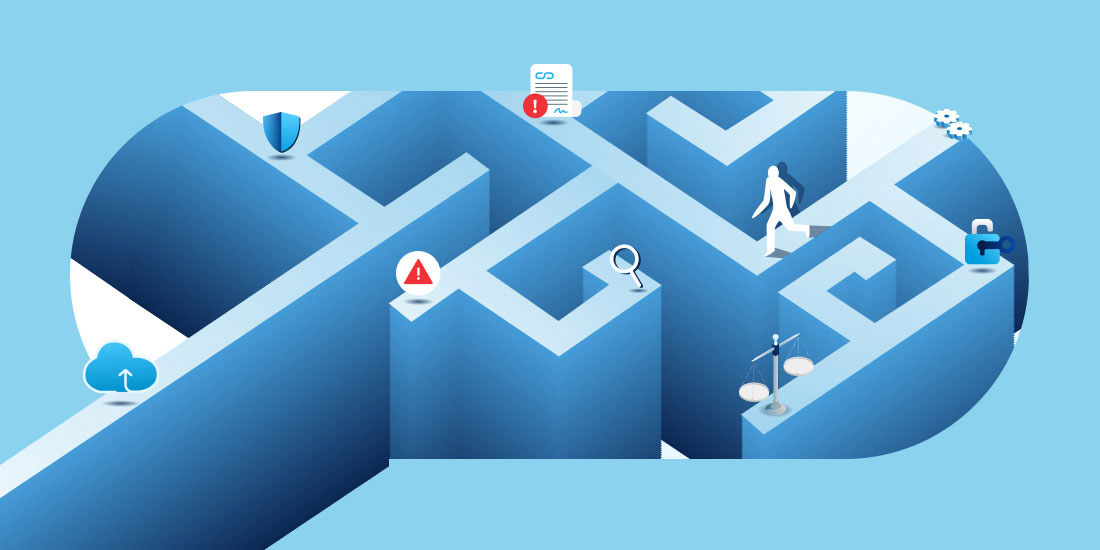Estimated Reading Time: 4 Minutes
The insurance industry is one of the business sectors that handles the most critical information of thousands of individuals every day. As insurance companies move away from paper-based records and take these data sets into digital and electronic forms to improve their workflow processes, they face different risks in storing and handling this highly sensitive information.
Insurance companies obtain and store sensitive information, including social security numbers, financial and medical histories, and credit scores. Obtaining and managing these volumes of insurance data allows the industry to record and transmit needed information more efficiently and seamlessly.
But this also presents risks: volumes of insurance data can get lost through accidental or malicious deletions, corruption of storage devices or computers, or cyber-attacks. Client information can get into the hands of unauthorized people—individuals within the company or external threat actors—compromising consumers’ data privacy. If this happens, insurance companies will be answerable to regulatory bodies who oversee institutions’ compliance with data security practices, and they may also face lawsuits from affected parties. Both of these scenarios may lead insurance companies to pay financial fines and face risks of reputational damage.
Deloitte’s 2022 Insurance Regulatory Outlook attests to this, saying that the insurance sector’s participation in the digital transformation and increased usage of electronic data “can create significant business value while simultaneously heightening inherent risk.”
This situation calls for the implementation of a backup and archiving solution. An effective archiving solution will assist in ensuring insurance data security and will serve as protection from potential accidental/malicious deletion of files or cyberattacks.
Insurance Data Security Regulations
Insurance Data Security Model Law
This law, adopted by the United States in 2017, focuses on implementing security measures for handling, storing, and transmitting insurance-related data.
Under this legislation, insurance companies are expected to ensure the security and confidentiality of individuals’ nonpublic information and the safety of their systems that store it. Organizations must then protect data against unauthorized access by various means, including encryption, when the data is stored and transmitted electronically.
Insurance companies must also notify the National Association of Insurance Commissioners about cybersecurity events affecting insurance data security no later than 72 hours. They must also maintain records concerning all cybersecurity events for at least five years. They also have to produce those records upon the demand of the commissioner.
So far, nearly 30 US states have adopted this legislation.
Health Insurance Portability and Accountability Act (HIPAA)
This US federal law was formed to ensure that individuals’ health information is adequately protected. Companies providing healthcare insurance are answerable to this legislation, given that they handle individuals’ health information.
Under the HIPAA Security Rule, insurance organizations must “ensure confidentiality, integrity, and availability of all protected electronic health information.” Organizations are also required to notify patients about a data breach no later than 60 days from the discovery of the breach.
To support the HIPAA legislation, in 2009, Health Information Technology for Economic and Clinical Health Act (HITECH Act) became a law intended to promote the adoption and use of health information technology, which was used by only about 10% of US hospitals at the time. Meanwhile, in 2021, the HIPAA Safe Harbor Bill was introduced to amend the HITECH Act, instructing HIPAA-regulated to adopt practices that can improve their defenses against cyber-attacks.
General Data Protection Regulation
In the European Union, the GDPR also includes clauses that protect insurance-related data. Organizations are required to handle data securely by putting in place “appropriate technical and organizational measures,” such as implementing encryption and maintaining detailed documentation of the collected data: how it is used, where it is stored, and the employees responsible for them.
The GDPR also calls for limiting access to personal data to only those employees who need it and the sharing of data to third-party organizations while ensuring the security of insurance data as it is transmitted through emails and other electronic data transfers.
EU organizations impacted by data breaches have 72 hours to notify the data subjects about the compromise of their data or face penalties. This notice requirement, however, may be waived if technological safeguards, such as encryption are implemented.
Backup and Archiving for Insurance Firms
Backup and archiving solutions play a significant role in protecting insurance organizations’ client information and other internal data against threats and risks like ransomware attacks or accidental deletions.
Dropsuite specializes in helping insurance firms keep their highly sensitive data safe, secure, and protected. Our cloud-based solution efficiently backs up, stores, preserves, and, if necessary, quickly restores data at a moment’s notice. From Microsoft 365 to Google Workspace, IMAP-POP to Hosted Exchange, we deliver data security across a range of cloud-based ecosystems.
The insurance industry can subvert compliance challenges through our easy-to-use, secure, and scalable backup and recovery tools. Not only does Dropsuite provide business compliance—we also enable business continuity.
Insurance firms have the flexibility to set retention rates that are as long as necessary to maintain compliance legally. Address lawsuits and discovery processes through legal or time-based holds in any platform where pertinent insurance data is stored.
It is also a breeze to set up an automated backup and archiving system, even with a minimal IT budget. Dropsuite provides industry-leading backup and recovery solutions for a very low cost-per-seat license, coupled with military-grade encryption that ensures insurance data security both in transit and at rest.
Talk to our experts here to learn more about how we secure your insurance data.






